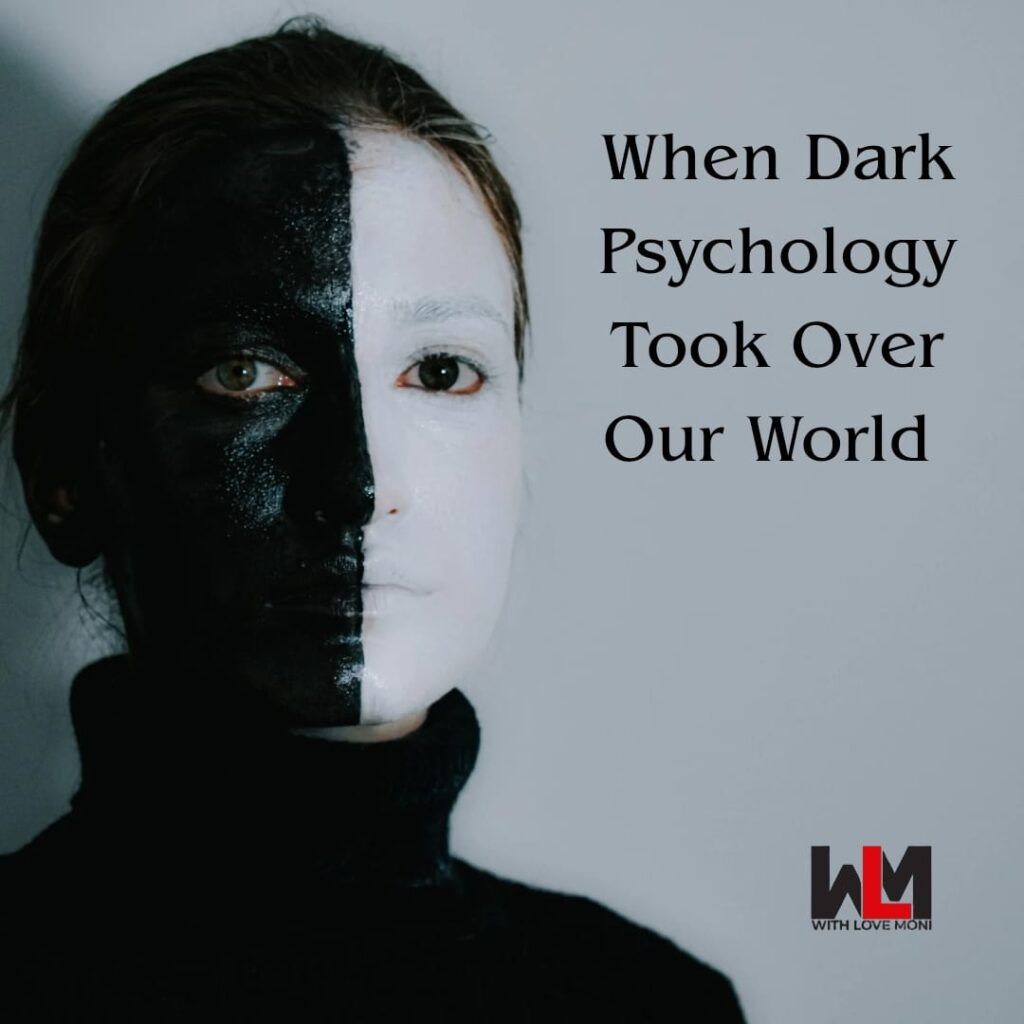There was a time when human behavior was just that — behavior. We didn’t have terms like gaslighting, trauma bonding, or narcissistic abuse. We simply said, “He’s moody,” or “She’s manipulative.” But as psychology evolved and psychiatry began exploring the hidden corners of the human mind, something shifted. We began to see patterns recurring emotional blueprints that explained why people act the way they do.
And that’s when dark psychology came to light.
Dark psychology isn’t about evil people lurking in shadows. It’s about the dark, complex side of human behavior manipulation, deceit, exploitation, control. It’s the part of the mind that understands emotions so well that it can twist them. The part that knows how to use guilt as a weapon or affection as bait. It was always around us in workplaces, families, friendships, and relationships but now, we finally have names for it.
Every day, I see people on social media identifying toxic traits, sharing reels about red flags, and quoting lines about narcissists and gaslighters, even I post about these traits sometimes. Awareness is spreading and that’s a beautiful thing. But somewhere along the way, I also notice a quiet danger emerging: the overuse and misuse of psychological terms. Not every disagreement is manipulation. Not every emotional detachment is narcissism. And not every hurtful word comes from a dark intent. Sometimes, people are just… human; flawed, emotional, reacting out of pain or confusion.

What fascinates me most about dark psychology is that it doesn’t come from outer darkness; it comes from within us. It’s rooted in fear, insecurity, and the human need to control what feels uncertain. A manipulative partner might once have been a neglected child seeking validation. A controlling boss might be someone terrified of losing power. It’s never just about cruelty it’s often about unhealed wounds. Psychiatry and modern psychology now help us see this hidden pain behind destructive patterns.
Yet, as awareness grows, balance becomes crucial.
We must remember that not everything unpleasant belongs to “dark psychology.” The danger lies in labeling too quickly calling someone “toxic” before understanding their story, diagnosing people around us without the tools or training. Understanding human behavior is powerful, but with that power comes responsibility — the responsibility to stay compassionate.
The truth is, dark psychology is not just about them; it’s about us.

We all carry light and shadow within us. We all, at some point, have said words that hurt or stayed silent when we should’ve spoken. We all have moments when fear, not kindness, led our choices. Recognizing that duality helps us grow, it makes us gentler with others and with ourselves.
In 2026, I plan to dive deep into this world. Through my A2Z Blog Challenge, I’ll explore the layers of dark psychology, one letter at a time. I’ll write about manipulation, projection, emotional control, power play, and the fine line between survival and cruelty. I’ll talk about how psychology and psychiatry help us identify patterns, understand intent, and begin the journey of healing.
It won’t just be theory, it’ll be real stories, reflections, and emotional insights. Because dark psychology isn’t something that exists in research papers; it’s something that happens in everyday life in families, in offices, in love stories, even in friendships.
By naming it, we take its power away.
By understanding it, we heal.
By balancing awareness with empathy, we humanize the darkness that’s always been part of us.
So yes, dark psychology has taken over but perhaps not in the way we fear. It hasn’t made the world darker; it’s simply helped us turn on the light.


